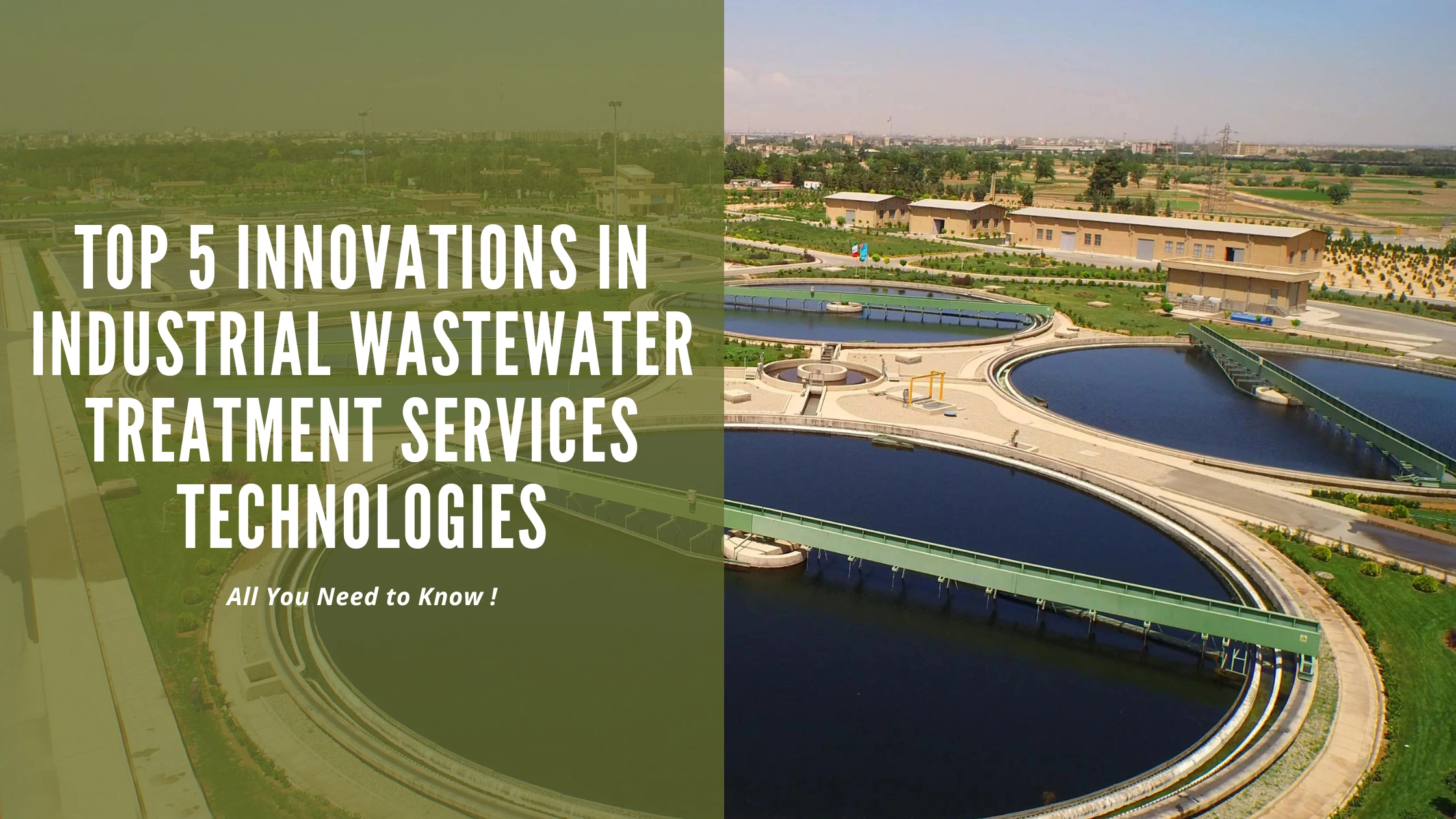Top 5 Innovations in Industrial Wastewater Treatment Services Technologies

Sustainable practices and environmental consciousness take centre stage today, and treating industrial wastewater is a vital challenge. As industries burgeon, so does the volume of pollutants discharged into our water systems. Hence, the importance of industrial wastewater treatment services or an industrial wastewater treatment company to help preserve our water systems and the environment.
While effective to a certain extent, traditional treatment methods face limitations in handling complex amounts of contaminants. This article explores the top 5 innovations in industrial wastewater treatment services technologies, highlighting the transformative power of cutting-edge solutions in preserving our planet's most precious resource.
Why are Industrial Wastewater Treatment Technologies Important?
Conventional methods, including physical, chemical, and biological treatments, have been the go-to for industries. However, these methods often struggle to effectively remove new contaminants and face challenges in treating industrial effluents with varying compositions. Thus, industry owners need to partner with an industrial wastewater treatment company to leverage modern technologies for wastewater treatment.
The need for innovative approaches to wastewater treatment has given rise to new technologies that are more important than ever before. These advancements promise improved efficiency and offer sustainable solutions to address the environmental impact of industrial activities.
Top 5 Innovations in Industrial Wastewater Treatment Services Technologies
Advanced Membrane Filtration
Providers of industrial waste water treatment services often use advanced membrane filtration technologies for modern-day industrial wastewater treatment. These nanoscale precision membranes efficiently filter out contaminants, including suspended solids, pathogens, and even nanoparticles. Unlike traditional filtration methods, advanced membrane filtration provides a more reliable and cost-effective solution, ensuring a higher quality of treated water.
Biological Treatment Advancements
Innovations in biological treatment methods influence how an industrial wastewater treatment company helps industries approach wastewater management. Microorganisms, tailored to specific contaminants, are employed to break down pollutants effectively. This approach helps reduce the reliance on chemical treatments and minimize the environmental impact. Bioremediation and bioaugmentation are also becoming increasingly popular in addressing the many pollutants found in industrial effluents.
Smart Monitoring and Control Systems
Integrating the Internet of Things (IoT) and sensor technologies has given birth to smart monitoring and control systems in wastewater treatment. As a result, an industrial wastewater treatment technology company can precisely control treatment processes via real-time data collection and analysis. This enhances the treatment plants’ efficiency and allows for proactive responses to fluctuations in wastewater composition. Smart systems also help optimize resources and reduce energy consumption and operational costs.
Electrochemical Treatment Solutions
Electrochemical treatment methods are gaining traction for their ability to target specific contaminants through oxidation or reduction reactions. Electrochemical processes can effectively remove heavy metals, organic pollutants, and even pathogens using electrodes. This innovation offers a more sustainable and energy-efficient alternative to traditional chemical treatments, significantly reducing the environmental footprint of industrial wastewater treatment.
Reuse and Resource Recovery Innovations
Technology-driven industrial waste water treatment services are spearheading a paradigm shift in how we view wastewater – from a problem to be treated and disposed of to a resource that can be reclaimed. Technologies focused on water reuse and resource recovery are emerging as key contributors to sustainable industrial practices.
Membrane technologies and advanced treatment processes enable industries to reclaim water for their processes, reducing the demand for freshwater sources. In addition, resource recovery from wastewater, such as extracting valuable metals, is becoming a viable and economically attractive option.
Challenges and Future Outlook
While these innovations mark significant progress in industrial wastewater treatment, challenges persist, as high implementation costs, regulatory hurdles, and public awareness remain critical.
For instance, the regulatory framework surrounding industrial wastewater treatment is crucial. Governments worldwide are increasingly stringent in enforcing environmental standards, driving industries to seek advanced solutions. Hence, understanding and navigating the regulatory framework is integral to successfully implementing these technologies.
Looking forward, ongoing research and development are essential to overcome these challenges and further enhance the efficiency and accessibility of these technologies. The future holds promise, with continued innovation likely to reveal new findings in sustainable wastewater management.
Summary
Industrial wastewater treatment is undergoing profound transformations fueled by innovation in industrial wastewater treatment services technologies. These technologies address the shortcomings of traditional methods and usher in a more sustainable and environmentally conscious industrial sector. Therefore, collaborating with an industrial wastewater treatment technology company to adopt these innovations becomes imperative as industries grow to allow compliance and the shared responsibility of safeguarding our water resources for future generations.
